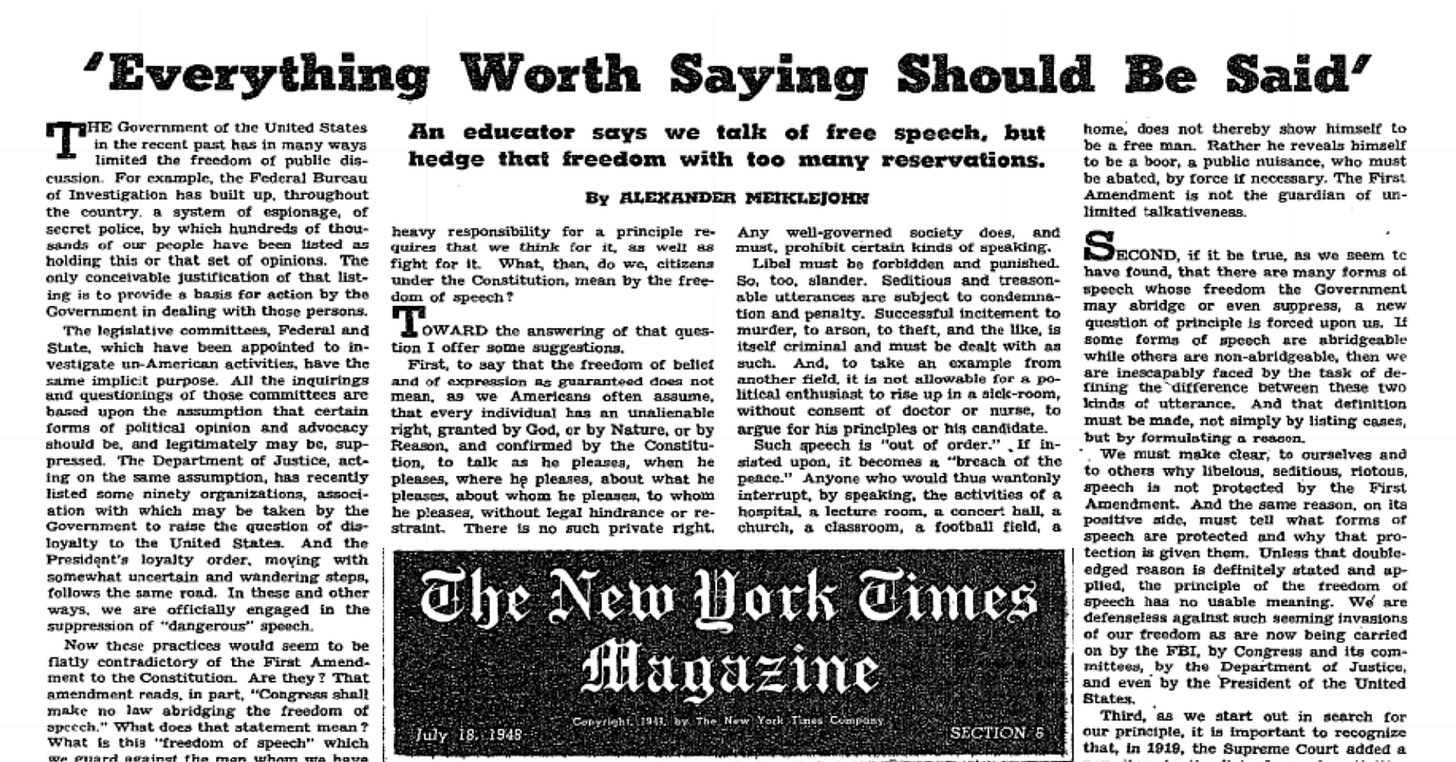Alexander Meiklejohn 1948: 'Everything Worth Saying Should Be Said'
"To be afraid of ideas, of any ideas, is to be unfit for self-government."
Alexander Meiklejohn was a philosopher and free speech theorist who served as dean of Brown University and president of Amherst College. Meiklejohn was also a member of the ACLU’s national committee and was awarded the Presidential Medal of Freedom in 1963. Meiklejohn was famous for promoting the belief that self-governance served as the primary justification for freedom of speech. In the July 18, 1948 issue of The New York Times Magazine, Meiklejohn argued that while some reasonable time, place, and manner limitations on speech were necessary, the ability of citizens to govern themselves required that ideas themselves not be deemed dangerous or off-limits.
The basic need of free discussion, therefore, is not that everyone shall speak but that everything worth saying shall be said. The vital point is that, though persons may, on other grounds, be barred from speaking, no one may be barred because his views are thought to be false or dangerous, are judged to be unwise or un-American. When men govern themselves, it is they—and no one else—who must estimate unwisdom and unfairness and danger.
[ . . . ]
To be afraid of ideas, of any ideas, is to be unfit for self-government.
The First Amendment, then, declares to us and to all men that Hitler’s “Mein Kampf” or Lenin’s “The State and Revolution” or the Communist Manifesto of Engels and Marx may be freely printed, freely sold, freely distributed, freely read, freely discussed, freely believed, freely denied, throughout the United States. And the purpose of that provision is not to protect a private right of Hitler or Lenin or Engels or Marx to say what he thinks. We are not defending the financial interests of a publisher, or a distributor, or even a writer. We are saying that the citizens of the United States will be fit to govern themselves under their own institutions only if they have faced squarely and fearlessly everything that can be said in favor of those institutions, everything that can be said against them.



